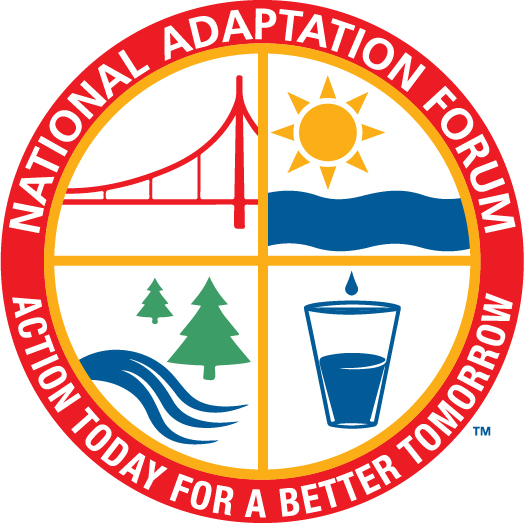Business Continuity
Business Continuity: In the Face of Extreme Weather

The Federal Emergency Management Administration (FEMA) has indicated that upwards of 40% of small businesses never reopen their doors following a disaster, and another 25% fail within one year following such a disaster.
This all-day, highly interactive workshop is for small and medium-sized business leaders. Even if your organization has done a business continuity plan, bring it to this workshop and see where these might be improved. Participants will develop the knowledge and skills to plan for possible work stoppages due to extreme weather events and help ensure that they get their businesses up and running as quickly as possible after such an event. Leaders of enterprises that survived large storm events such as Irene, Katrina, and Sandy will share lessons learned and offer tips for preparedness.
Scott Cave, an expert in business continuity planning, will take participants through exercises that will allow them to apply and tailor the framework to their own particular situation.
Participants will learn how to:
· Assess enterprise preparedness
· Understand and operationalize the 4 P’s of preparedness
· Develop a business continuity plan
Participants will leave the workshop with:
· Understanding of historical changes in the frequency and scale of weather events
· How to best respond to the uncertainty of projected future climate trends
· The vulnerability of systems that necessarily support a business
· The consideration of supply chains at multiple scales
· How to frame a continuity plan in light of extreme weather and sea-level rise
Keynote Speaker: Bob Perciasepe

Bob Perciasepe is President of the Center for Climate and Energy Solutions, which is widely recognized in the United States and internationally as a leading, independent voice for practical policy and action to address our energy and climate challenges.
Mr. Perciasepe has been an environmental policy leader in and outside government for more than 30 years, most recently as Deputy Administrator of the U.S. Environmental Protection Agency (EPA). He is a respected expert on environmental stewardship, natural resource management, and public policy, and has built a reputation for bringing stakeholders together to solve issues.
While Mr. Perciasepe served as Deputy Administrator from 2009 to 2014, EPA set stricter auto emissions and mileage standards, increased protections for the nation’s streams and rivers, and developed carbon emissions standards for power plants. Mr. Perciasepe was previously assistant administrator for both the agency’s water and clean air programs, leading efforts improve the safety of America’s drinking water and lower sulfur levels in gasoline to reduce smog.
In 2002, Mr. Perciasepe joined the National Audubon Society, one of the nation’s oldest conservation organizations, as its senior vice president for public policy. He served as the group’s chief operating officer from 2004 to 2009, and worked to protect wetlands and expand environmental education.
He has also held top positions in state and municipal government — as Secretary of the Environment for the state of Maryland from 1990 to 1993 and as a senior planning official for the city of Baltimore, where he managed the city’s capital budget.
Mr. Perciasepe is a member of the U.S. Export-Import Bank 2015 Advisory Committee and the National Research Council Board on Environmental Studies and Toxicology. He holds a master’s degree in planning and public administration from the Maxwell School of Syracuse University and a Bachelor of Science degree in natural resources from Cornell University.
Presenter: Scott Cave

Scott Cave is a Principal with Atlantic Business Continuity Services in Charleston, SC. Over his career, Mr. Cave has worked in a variety of management roles, including Finance, Human Resources, Information Technology, and Business Continuity. As a Principal with Atlantic Business Continuity Services, Mr. Cave consults with a variety of businesses, governmental agencies, and non-profit organizations to develop and maintain their business continuity, disaster recovery, and emergency plans.
A Certified Business Continuity Professional, Mr. Cave has written plans for a variety of organizations over the past 15 years, facilitated dozens of tabletop exercises, and led many successful recovery efforts. Mr. Cave served on the Charleston Metro Chamber’s Business Continuity Planning Council as Chairman from 2008 – 2010, and has served as a leader of the Business and Industry Emergency Support Function for the Charleston County Emergency Operations Center since 2010.
Mr. Cave has participated in several national community resilience programs, including a pilot of FEMA’s Net Guard program in 2010 and the Community and Regional Resilience Initiative (CARRI) from 2009 to 2011.
Presenter: Michael Simpson

Currently, Professor Michael Simpson is the Chair of the Environmental Studies Department at Antioch University New England. Within the department, he has taught graduate level courses in wetlands ecology, watershed management, environmental site assessment and climate adaptation and resilience.
His primary research focuses upon impact to riparian corridors and estuaries, from changes in land-use combined with increases in storm intensity and frequency due to projected climate change. He also has conducted numerous economic cost/avoided cost analyses related to decisions regarding resource utilization and conservation.
His current, research over the last ten years has been funded by NOAA and the US EPA, which has focused primarily on building local stakeholder capacity so to identify potential risks from projected climate and land-use change followed by developing an adaptation strategy for communities to better prepare for projected impacts.















